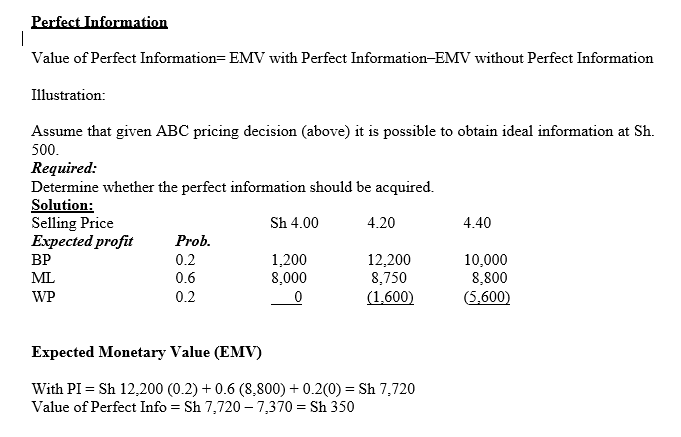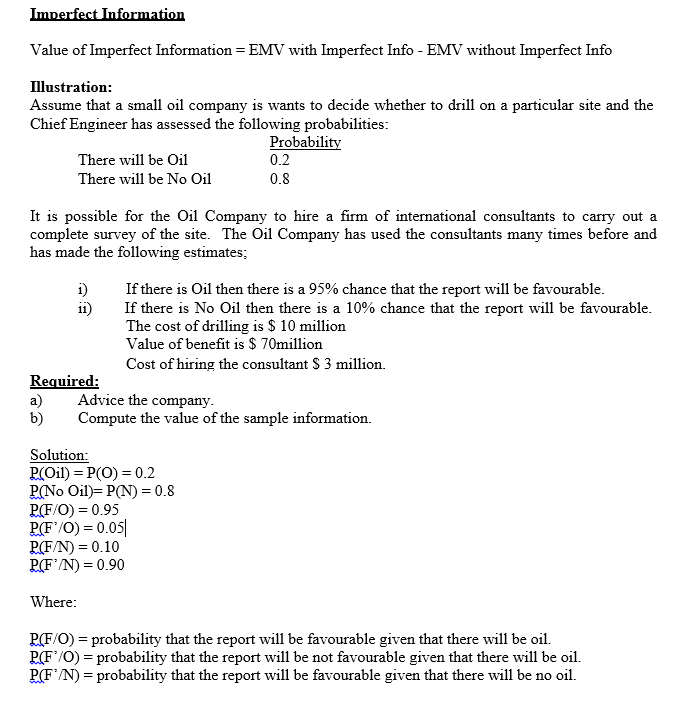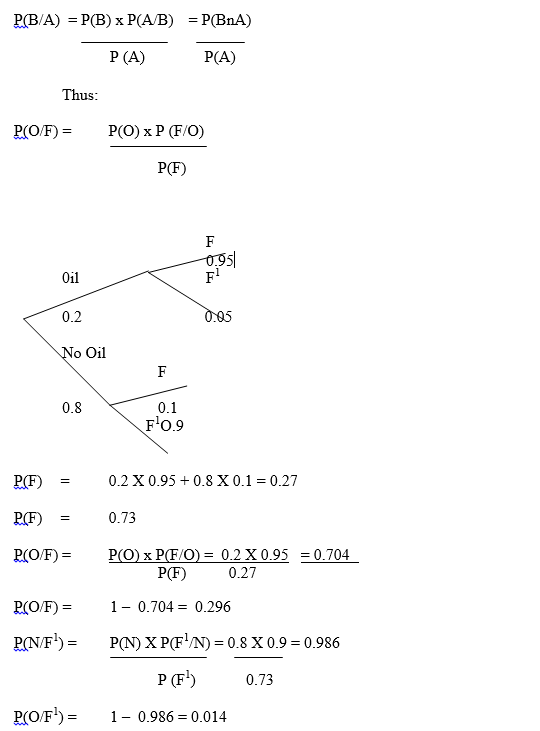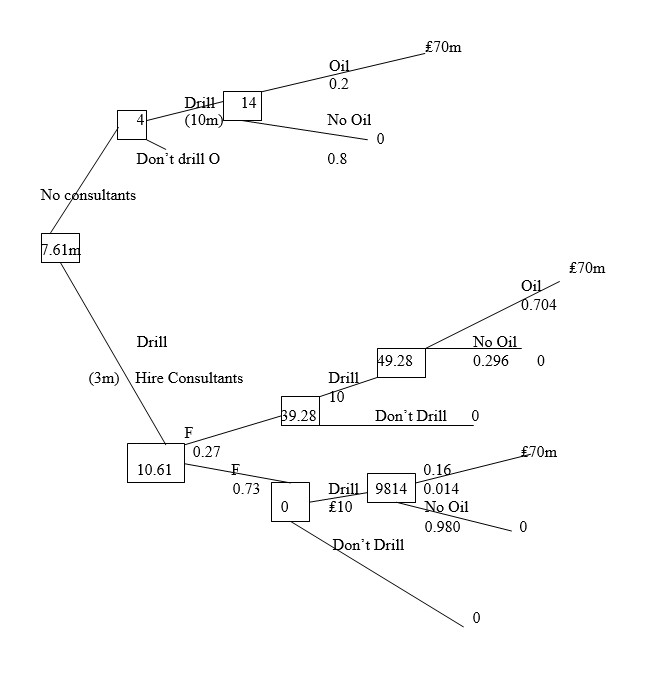-Uncertainty about the future outcomes can sometimes be reduced by first obtaining more information on what is likely to occur. Such information can be obtained from various sources e.g. marketing research surveys, conducting pilot tests or building a prototype model. Information can be categorized depending on how reliable it is likely to be in predicting what will happen in the future and therefore for helping management in making better decisions. Perfect information is information that is guaranteed to predict the outcome with 100% accuracy.
-Imperfect information on the other hand, although it might be quite good and better though having no additional information it could be wrong in its prediction of the future. Imperfect information is also referred to as sample information. Both perfect and imperfect information will be costly to acquire and therefore its value must be determined.

Decision:
Don’t pay for perfect information (PI) since it has a higher cost than its worth.
NOTE: The value of perfect information is equal to the minimum Expected Opportunity Loss.
Imperfect Information
Value of Imperfect Information = EMV with Imperfect Info - EMV without Imperfect Info

From Bayes Theorem

 Decision:
Decision:Hire the consultant and if the report is favourable drill. If not favourable don’t drill.
Value of imperfect information
= 10.61 – 4.0 m = Ksh 6.61 m
Hire consultants and if the report is favourable you will drill, if it is not favourable do not drill.
The net benefit of hiring the consultant= Ksh 6.61m – 3 = 3.61m or
= Ksh 7.61 – 4m = 3.61m
Titany answered the question on
October 12, 2021 at 05:23